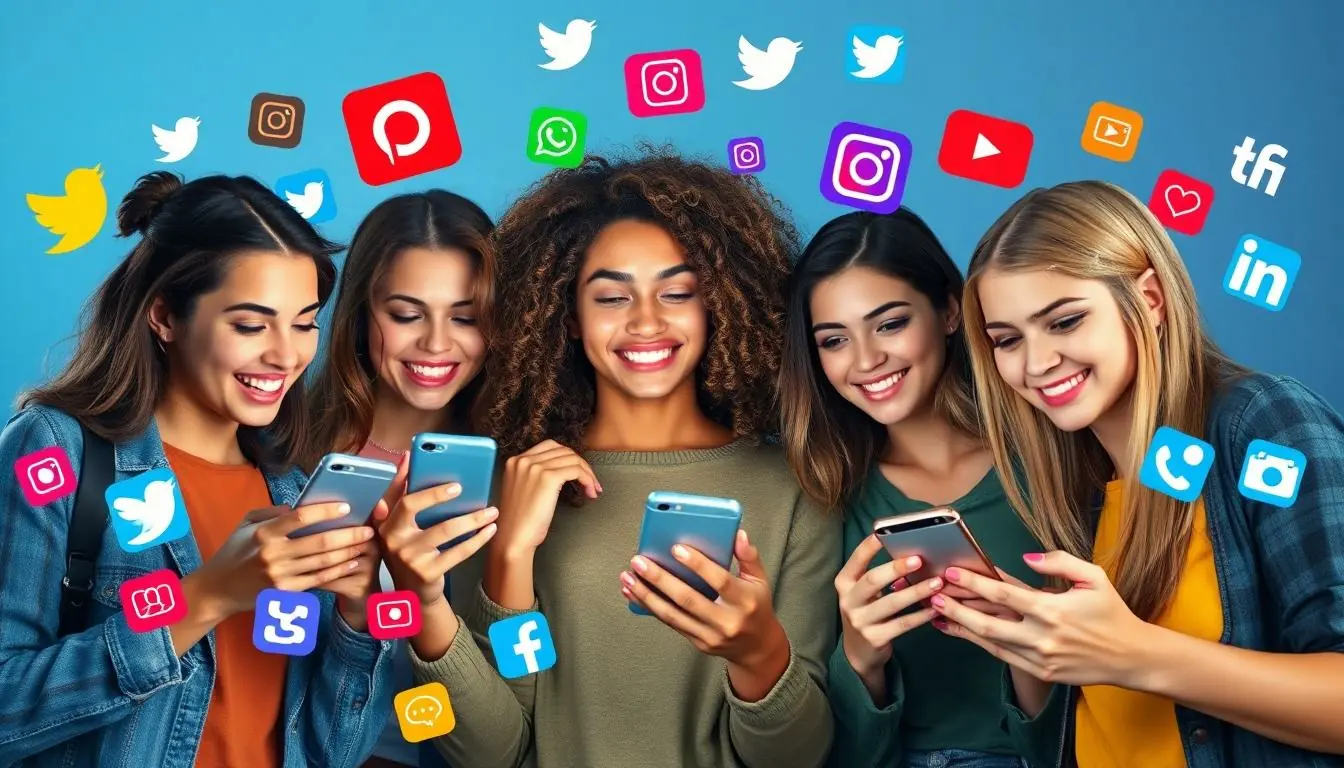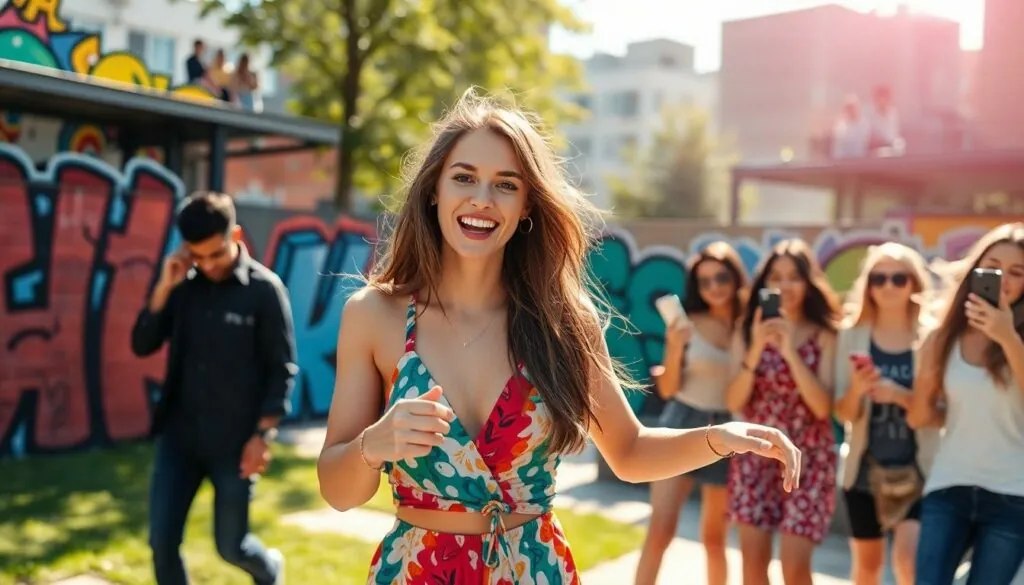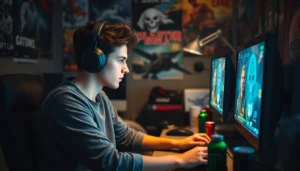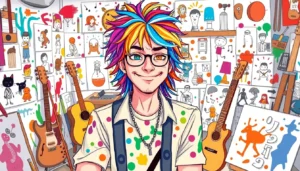In a world where TikTok dances and celebrity scandals reign supreme, the pop culture crisis looms larger than ever. It’s not just about the latest meme or viral video; it’s a reflection of society’s shifting values, priorities, and even sanity. As trends come and go faster than a celebrity marriage, people are left wondering: is this all just a fleeting distraction or a sign of something deeper?
From the rise of cancel culture to the obsession with influencer lifestyles, the landscape of entertainment is evolving at breakneck speed. This whirlwind of change can leave anyone feeling a bit dizzy—or worse, out of touch. So grab your popcorn and settle in, because understanding this pop culture crisis might just be the key to navigating the chaos of modern life. Who knows? You might even find a nugget of wisdom hidden in the latest TikTok challenge.
Table of Contents
ToggleUnderstanding the Pop Culture Crisis
The pop culture crisis encapsulates evolving trends and shifts in society. While entertainment flavors change, the underlying issues often reveal deeper truths about cultural values.
Definition of Pop Culture Crisis
A pop culture crisis refers to a period characterized by confusion and disillusionment surrounding societal norms and entertainment practices. It manifests through disjointed trends, rapid changes in public sentiment, and the prominence of social media platforms. The dynamics of this crisis shed light on tensions between authenticity and online personas, driving a disconnect between audience expectations and reality. These shifting paradigms challenge individuals to reassess their relationship with media and cultural phenomena.
Key Characteristics and Indicators
Several characteristics distinguish the pop culture crisis. First, the prevalence of cancel culture highlights public sensitivity to accountability and consequences for celebrities’ actions. Second, the rise of influencer culture reflects a shift in how society values personal branding over traditional achievements. Third, the speed of trend cycles, particularly on platforms like TikTok, often leaves audiences feeling overwhelmed. Fourth, societal polarization becomes evident in how communities react to specific cultural topics. Recognizing these indicators facilitates a better understanding of the current landscape in pop culture.
Factors Contributing to the Pop Culture Crisis

Pop culture experiences a crisis due to various interrelated factors. These factors shape perceptions and reactions within society.
Influence of Social Media
Social media platforms amplify trends at unprecedented speeds. Viral challenges and meme cultures gain traction quickly, influencing public behavior and tastes. Platforms like TikTok create a space for instantaneous engagement, fostering trends that require constant adaptation. Users’ feeds often reflect an unrealistic standard of celebrity lifestyles, which can distort personal expectations. The environment fosters a focus on immediate gratification, diverting attention from deeper cultural discussions. Cancel culture, exacerbated by digital interactions, leads to rapid judgments on individuals based on surface-level reactions. The result creates a landscape where thoughtful dialogue becomes secondary to quick reactions.
Changing Consumer Behavior
Consumer behavior is shifting significantly in relation to pop culture. Audiences now prioritize instant access to content, shifting away from traditional media consumption. Streaming services and social media platforms democratize content, allowing diverse voices to emerge. This shift encourages a more fragmented audience, leading to niche communities rather than unified trends. Brands often cater to individual preferences, resulting in personalized marketing strategies. Users’ need for authentic connections drives demand for transparency in advertising. These changes contribute to a more complicated pop culture landscape, making it challenging to identify consistent cultural narratives.
Impact on Society
Pop culture significantly shapes society, influencing values and behaviors. The current crisis reflects deeper issues around cultural identity and mental health, drawing attention to the need for reflection and change.
Cultural Identity and Representation
Cultural identity emerges prominently in pop culture discussions. Representation often affects how individuals perceive themselves and their communities. Increased visibility of diverse voices helps challenge stereotypes, fostering a sense of belonging. Media that showcases various backgrounds encourages empathy among audiences, allowing for broader cultural appreciation. When representation is lacking, feelings of alienation can arise. Society benefits when popular media actively includes underrepresented groups, creating positive cultural shifts.
Mental Health Implications
Mental health increasingly intertwines with pop culture narratives. Instant gratification linked to social media can contribute to anxiety and feelings of inadequacy. Exposure to idealized influencer lifestyles may skew perceptions of reality, impacting self-esteem. Individuals frequently compare themselves to celebrities, leading to unhealthy standards. Coping mechanisms often fail when one immerses in a constantly changing environment. Awareness of these challenges is crucial, as addressing them can lead to healthier consumption of pop culture. Fostering discussions around mental health helps promote resilience amidst societal pressures.
Responses and Solutions
Understanding how to navigate the complexities of the pop culture crisis involves recognizing the proactive roles of various stakeholders. Creators and influencers play crucial parts in shaping narratives and engaging audiences.
Role of Creators and Influencers
Creators and influencers significantly impact cultural trends and discussions. They possess the unique ability to create content that resonates with diverse audiences, bridging gaps between different communities. With immense reach on platforms like TikTok and Instagram, they often initiate conversations around pressing social issues. Their responsibility includes promoting authenticity and mental well-being while countering superficiality in content. By balancing entertainment with meaningful messages, creators contribute to a more informed public. Transparent communication about challenges and successes can foster connection and trust among followers. As they embrace responsibilities beyond personal branding, influencers shape a healthier relationship between pop culture and societal values.
Community Engagement and Activism
Community engagement thrives within the landscape of pop culture activism. Activists utilize social media platforms to mobilize groups around shared causes, raising awareness about important social issues. Through collaborative efforts, communities unite to challenge harmful trends, drawing attention to underrepresented voices. Engagement often takes the form of grassroots campaigns, where audience participation amplifies messages. Leveraging the collective power of online communities can lead to significant social change. As they share personal stories and experiences, individuals feel empowered to advocate for justice and equality. Active participation in pop culture can create a ripple effect, encouraging others to join the conversation and be part of the solution.
Navigating the complexities of the pop culture crisis requires awareness and adaptability. As trends shift rapidly and societal values evolve, individuals must remain critical consumers of media. Embracing diverse voices and fostering authentic connections can help mitigate feelings of alienation and confusion.
Creators and influencers hold the power to reshape narratives by promoting meaningful content that prioritizes mental well-being over superficial trends. By engaging in discussions and advocating for social issues, they can inspire a more informed and empathetic audience.
Ultimately, understanding the dynamics of pop culture is essential for fostering resilience and connection in an ever-changing landscape.





